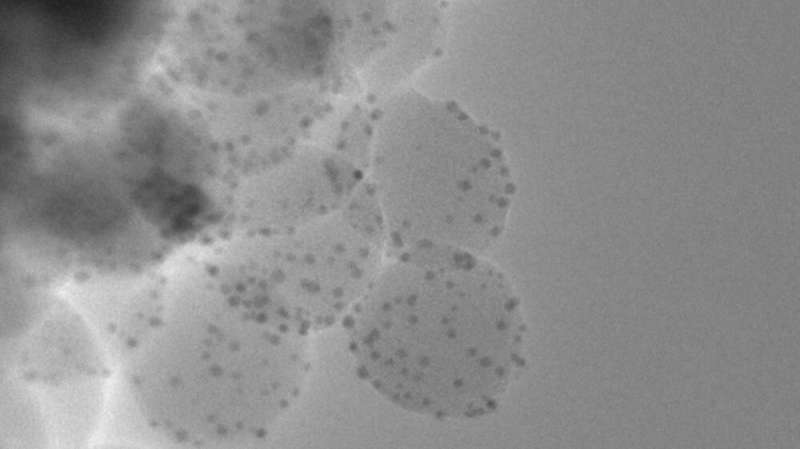Tackling antibiotic resistance: Phage-mimicking antibacterial core-shell nanoparticles could help

According to the World Health Organization, one of the biggest health threats around the world is antibiotic-resistant bacteria. Every day people use antibiotics to prevent or fight back against infection, but as bacteria evolve and develop resistance, diseases such as pneumonia and tuberculosis are becoming harder to treat.
Researchers at the University of Notre Dame are working to combat this problem by looking to bacteriophages or phages. Phages are viruses that infect bacteria, similarly to how bacteria infect people, but bacteria have yet to develop resistance to these viruses. In a study published in Nanoscale Advances, the researchers have shown the efficacy of a new nanoparticle-based system that mimics how phages attack and kill bacteria.
"Instead of chasing the next antibiotic, we want to create a system that can treat infection and is an option that bacteria can't develop resistance to," said Prakash Nallathamby, research assistant professor of aerospace and mechanical engineering and directing author of the study. "In our initial attempt, our team was able to kill several different types of clinically relevant bacteria with varying degrees of success."
The phage-mimicking nanoparticle system consists of silver-coated gold nanoparticles distributed randomly on a silica core. Once created, the system was tested for its ability to kill four bacteria types that are known to have antibiotic-resistant strains: Corynebacterium striatum, Enterococcus faecalis, Pseudomonas aeruginosa and Staphylococcus aureus. These various bacteria cause a number of health issues including prosthetic device infections, sepsis, meningitis and blood infections.
Initial tests showed that the nanoparticle system was 50 percent to 90 percent effective in killing the bacteria strains for all but Pseudomonas aeruginosa, which was only 21 percent effective. However, when the researchers combined the nanoparticle system with peptides that also have antibacterial activity, the system was 100 percent effective at killing the bacteria.
"By incorporating a biological element, we were able to make the nanoparticles more effective in eliminating the bacteria in initial testing," said Nallathamby. "Now, we are actively looking to partner with an organization that would advance this system to a clinical study."
More information: Juliane Hopf et al. Phage-mimicking antibacterial core-shell nanoparticles, Nanoscale Advances (2019). DOI: 10.1039/C9NA00461K
Provided by University of Notre Dame


















